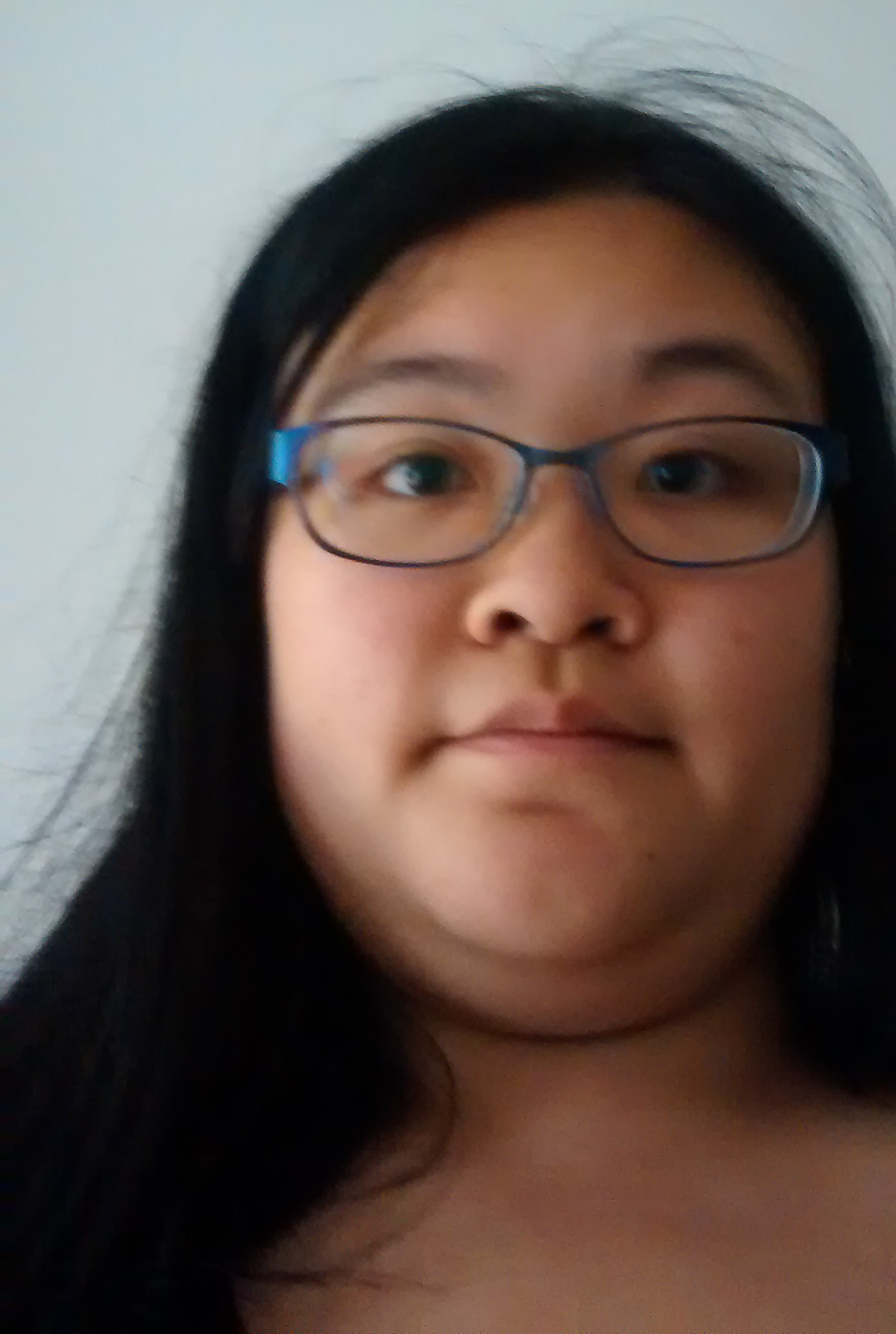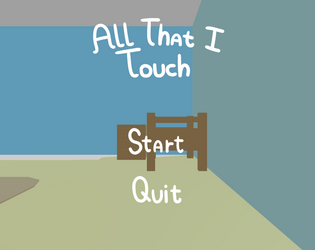Alison Huang

- Role: Game designer
- Location: Melbourne, Australia
Queerly Represent Me spoke with Alison Huang, a game designer specialising in 2d art, programming, and a bit of everything else.
QRM: Can you tell us a little bit about who you are and what you do in the games industry?
Alison: I mostly consider myself an artist, as well as a programmer. I especially enjoy narrative, and love exploring how to convey narrative through more nonconventional means. I also like to do a bit of game analysis regarding queer representation in games.
I am currently studying a Bachelor of Design (Games), which naturally helps out with everything.
QRM: How long have you been involved in the game industry, and what projects have you worked on? What are you working on currently?
Alison: I've been involved in the games industry for nearly three years now. I've worked on various projects for school, which have never seen the light of day outside of the classroom. Right now I only have one released game, All That I Touch, which I made for Rainbow Jam 2017.
I'm currently working on two projects. One is my final game for uni, and the other is a more experimental experience drawing on games, art and theatre, called Choir of the Impossible.
QRM: What inspired you to get started in the games industry?
Alison: In my final year of high school, I did some character and environmental designs for a fictional game brief, but I didn't consider it to be an actual path I could take. That changed when my teacher informed me that there was a games design course I could take. I went to the Open Day, and the rest is history.
I love games because they're such an active form of media, in the sense that you can't really passively absorb them. You're in control in some way, whether that be movement or choices and so on.
QRM: In what ways do you feel your experiences as a queer person manifest in the games you work on, and influence the work you do?
Alison: No matter what the game is, I tend to want to find a way to make it explicitly queer somehow. So far, it's manifested in ways from queer characters, to making sure that options and language never assume aspects like pronouns and gender.
Of course, sometimes I feel that I'm doing it "too much", but historically the work that I've poured something more personal into have been received better, and that does motivate me to continue making games more queer.
QRM: Do you have a favourite queer character—in games or media more generally? If so, what is it about them that makes them your favourite?
Question asked by @kamienw.
Alison: Isabella from Roommates, if only because at one point on her route she explicitly states she is pansexual to the player. If you respond rudely to that revelation, your relationship with her drops by a significant amount.
There are more interesting queer characters and more interesting queer games, but as someone who identifies as pansexual, that has always stuck with me.
QRM: Have you ever encountered roadblocks in trying to include queer characters in games? What do you think is preventing greater diversity within games?
Question asked by @dustinalex91.
Alison: Not particularly, but this is in part due to the fact that I live and breathe creating queer characters. I think the biggest struggle I have with this is making them explicitly queer in genres that aren't visual novels/Twine games. I always know my characters, but that doesn't mean the player knows without being told.
I believe that game companies do want to add diversity, but they are ill-equipped to actually implement it as of yet. I think a prime example of this is Hainly Abrams from Mass Effect: Andromeda. Companies should be willing to put more research into topics they are not well informed with, and also hire people who are better suited to putting diversity into their games.
Of course, these companies are more in the public eye than the more queer-friendly indie scene, and that puts a damper on things as well. Sometimes putting more representation in games could be more harmful due to the current social values. But there are ways of implementing diversity and mitigating that kind of backlash, like how Pyre offers the option for using they/them pronouns.

QRM: Why do you think it is important that queer audiences are able to see themselves represented in the games they play, and in the developers who make the games they see? What can we do to improve the industry for queer audiences and devs?
Alison: There are so many ways of being queer, and most of those ways aren't really shown in the media. A lot of people think that the only way to be queer is to be homosexual... and the scary part is that those people aren't necessarily non-queer themselves!
So, it's important to be able to show people that there's a word for that aspect of themselves that they're uncertain or confused about. That you can be attracted to multiple genders, or that you don't have to be male or female, or that you don't have to experience sexual or romantic attraction at all.
The industry just needs to let queer people in, listen to what they have to say, and shield them from harassment. If the industry genuinely wants to care about queer people, which I do believe it does at least on some level, the rest theoretically should be simple.
QRM: Have you ever mentored somebody in your role in games, or been mentored? If so, what made these experiences worthwhile for you?
Question asked by @pepelanova.
Alison: I've never mentored someone, nor have I been specifically mentored. However, my degree means that I have encountered many queer teachers and classmates, who have all given me strength and confidence in my queerness by merely being who they are.
QRM: In what ways can non-queer folk increase and support queer diversity present within games, as well as in the industry more broadly? How can we all work to support intersectional approaches to diversity, and why is this important?
Alison: Listen to queer people. Actually listen. Then recognise them for their experiences and efforts within the industry. Promote their existence, don't take all the credit for their hard work. Understand the privilege of not being queer.
QRM: Is there a message that you would like to share with the queer game players, game studies researchers, and other interested folks who comprise the Queerly Represent Me community?
Alison: Keep being you, and keep being strong.
*
You can find Alison Huang on Twitter and at her website.
You can also check out her games analysis on her blog.
